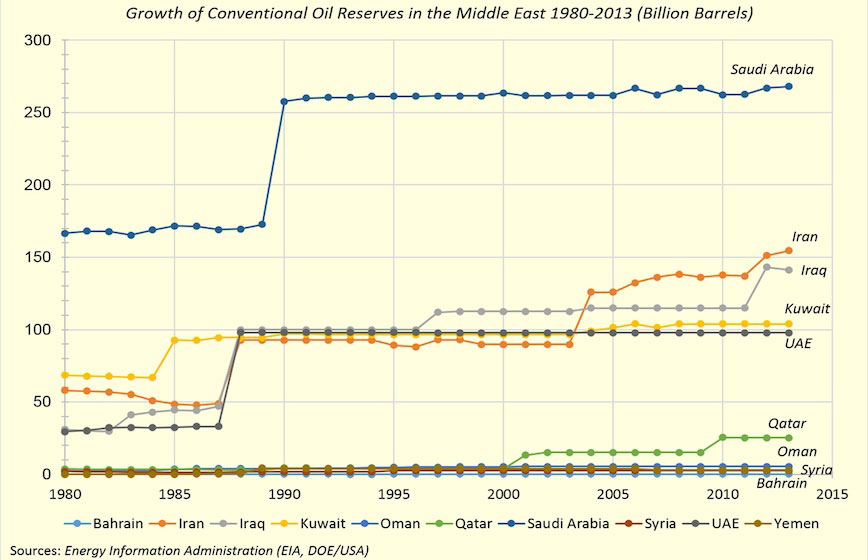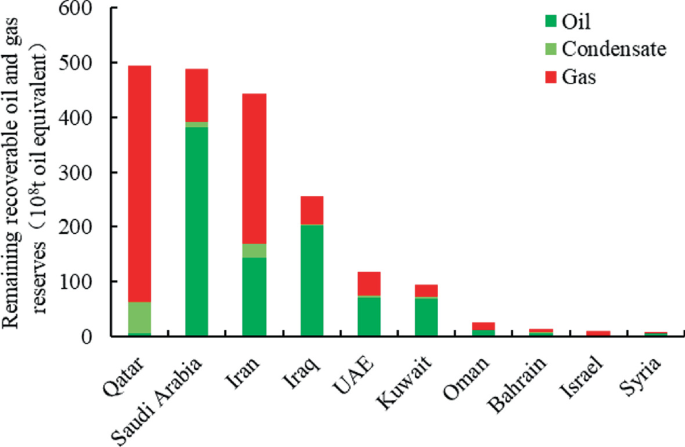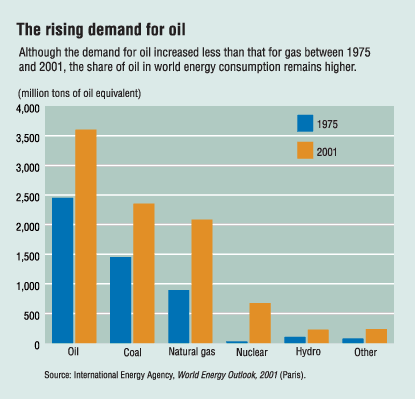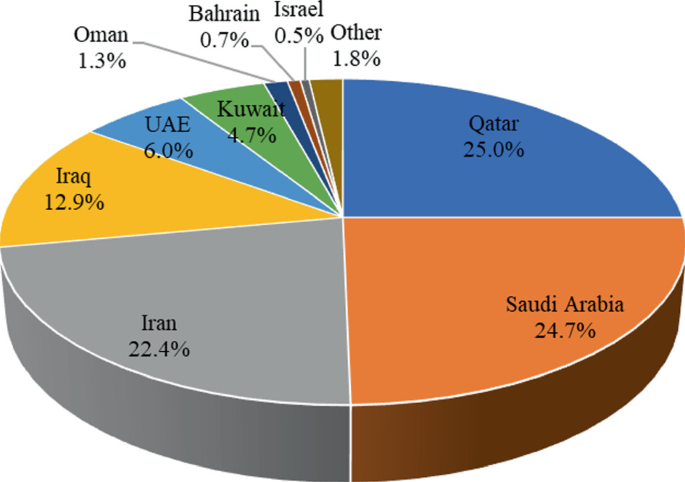What is scarcity?
the state of being scarce or in short supply; shortage
What is a primary source
an original document or object created during or close to the time of an event or topic

Who has the largest amount of growth of Oil Reserves?
Saudi Arabia
To what extent does the access to natural resources impact the nations (people) of Southwest Asia
Write a claim using this question.
The access to natural resources (Greatly, somewhat, or not at all) impacts the nations (people) of Southwest Asia.
Define Natural Resource
materials and energy that come from the environment and are used by humans
What is a Secondary Source?
a document that analyzes, summarizes, or interprets information from primary sources.

What was the author's purpose in creating this graph?
to provide information regarding the remaining recoverable oil and gas reserves.
What is the purpose of a claim in a C.E.R.?
The statement that answers the question. It should be one sentence, and most importantly, backed by evidence (not a hunch!).
Define Embargo
an official ban on trade or other commercial activity with a particular country.
How does origin effect credibility?
evaluating where a source comes from, its publication, and the author's credentials can provide valuable insights into its trustworthiness.

Who created this source?
International Energy Agency
What is evidence in a C.E.R.?
The information (data or observations) that supports the claim.
Define Nonrenewable Resource
Nonrenewable resources are natural substances that cannot be replenished as quickly as they are used. Examples of nonrenewable resources include coal, oil, natural gas, and nuclear energy
What is the author's purpose?
P.I.E. Persuade, Inform, Entertain

Who distributes the most? The Least?
Largest: Qatar Smallest: Israel
What is reasoning?
The explanation of how the evidence supports the claim
Define Crude Oil
unrefined petroleum.
What is Origin?
understanding who created it, when, where, and what the type of source is
What is the graphs origin?
10/8/2024
Which is the claim?
Access to natural resources, particularly oil, has significantly impacted the nations and people of Southwest Asia by shaping their economies, political power, and quality of life.
Southwest Asia holds about 57% of the world’s oil reserves, making oil a major source of wealth for countries like Saudi Arabia, Iran, and Iraq. Oil exports have led to economic growth, allowing governments to invest in infrastructure, healthcare, and education. However, countries with little oil, like Jordan, struggle with fewer economic opportunities. Additionally, conflicts over resource control, such as in Iraq and Kuwait, show how oil wealth can also lead to political tensions.
The vast oil reserves in Southwest Asia have led to economic prosperity in oil-rich countries, improving the standard of living for many people. However, the uneven distribution of resources has created disparities between nations, with oil-poor countries facing economic struggles. Additionally, reliance on oil has made these nations vulnerable to price fluctuations and global demand changes. Thus, while access to resources has brought wealth and development, it has also led to regional inequalities and conflicts.
Access to natural resources, particularly oil, has significantly impacted the nations and people of Southwest Asia by shaping their economies, political power, and quality of life.
